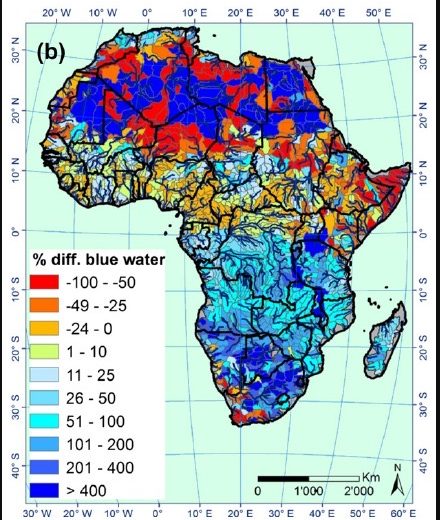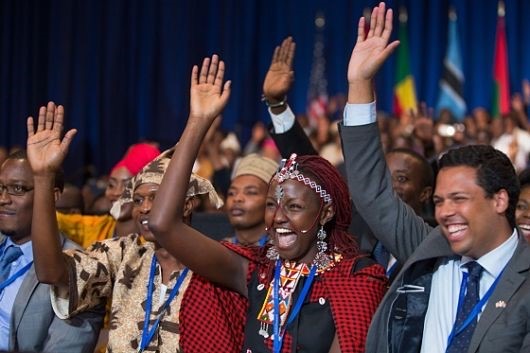A significant facet of Africa’s political landscape lies in the enduring tenures of its leaders. In the tapestry of the continent’s history, a handful of individuals have etched their names across time, steering their nations through decades of triumphs and challenges. As of 2023, five iconic figures – Teodoro Obiang Nguema Mbasogo, Paul Biya, Denis Sassou Nguesso, Yoweri Museveni, and Isaias Afwerki – continue to hold the helm, each surpassing two decades in office. This article embarks on a vivid exploration of these leaders, delving into the complexity of their rule amidst ever-evolving environments.
Teodoro Obiang Nguema Mbasogo, Equatorial Guinea
Equatorial Guinea’s president, Teodoro Obiang Nguema Mbasogo, who has held office since August 1979, has been elected to a sixth term. Obiang, who was born in 1942, had a military background and rose to prominence through a coup in 1979. Since 1996, the nation’s oil wealth has supported his administration, which is characterised by the repression of opposition and concerns about a coup. Some significant challenges the political opposition faces include low tolerance and operations being impeded by the lack of a free press, as every broadcast media outlet is either directly owned by the government or managed by its friends. Although accused of manipulation and violations of human rights, he denied such claims.
Even with economic progress under his administration, most people still live below the poverty line due to unequal wealth distribution. His protracted rule has attracted criticism and attention throughout the world, including calls for a probe into illicit money transactions. On a brighter note, his government’s historic decision to abolish the death penalty has been commended by the United Nations.
Paul Biya, Cameroon
Presently serving his eighth term, Paul Biya is the President of Cameroon, who assumed office on November 6, 1982. He is the second-longest serving leader in Africa at ninety years old. Over four decades of leadership are credited to Biya’s firm hold on power and the support of key loyalists. He became only the second head of state since Cameroon’s independence from France in 1960, having risen from prime minister to president in 1982. Ruling in a country beset by social, political, and security issues as well as economic inequality, Biya was dubbed ‘The Sphinx’ for his cunning and ‘Popol’, an affectionate word derived from Paul.
He has defended his record, citing development initiatives like Vision 2035, even if he has been facing criticism for things like corruption and governance. However, the nation faces difficulties due to threats from Boko Haram and a separatist revolt in English-speaking areas. It is also evident that many are unhappy about Biya’s extended reign, as they cite setbacks in Cameroon’s progress during the last 40 years as justification for change.
Denis Sassou-Nguesso, Republic of Congo
Denis Sassou-Nguesso served as the Republic of the Congo’s president from 1979 to 1992 and again from 1997 until now. His path to becoming president in 1979 started with military training in Algeria and France. Sassou-Nguesso, who was a member of the Congolese Labour Party, first supported Marxist-Leninist philosophy before changing to a pro-Western viewpoint.
Although there were times of stability during his leadership at first, the 1980s saw a decline in oil prices that led to unrest and economic difficulties. For Sassou-Nguesso, the public repudiation of Marxist-Leninist policies in 1990 was ominous. He was deposed in the 1992 multiparty elections, and Pascal Lissouba became president. But ongoing hostilities resulted in a civil war in 1997, which saw Sassou-Nguesso retake power.
Accusations of corruption and doubts about the legitimacy of democracy lingered despite efforts to address economic problems and violence through reforms. His contentious re-election in 2002 and term as the African Union chairman from 2006 to 2007 defined his political career. His victorious 2009 re-election, characterised by boycotts by the opposition, was largely unaffected by legal challenges in 2008. Due to changes that removed term limits, he was able to run for re-election in both 2016 and 2021 despite disagreements, accusations of fraud, and opposition boycotts.
Yoweri Kaguta Museveni, Uganda
After a victorious liberation battle, Yoweri Kaguta Museveni became president of Uganda on January 29, 1986. Born in 1944, Museveni spearheaded the opposition to earlier repressive governments and took over as president on January 26, 1986. His political career began while he was a student at Ntare School in Mbarara and continued while he was a political science major at the University of Dar es Salaam.
Prior to the successful battle of 1981–1986, Museveni was instrumental in the anti-Amin resistance movement of 1971–1979, which brought about the overthrow of that government. He established the Front for National Salvation (FRONASA), and in April 1979, he overthrew Amin with the aid of Tanzanian fighters. After winning, he set up a wide administration to bring all of Uganda’s political factions together.
Despite facing economic difficulties when he took office in 1986, Museveni carried out measures that helped Uganda’s economy recover internationally. Uganda became one of the first African nations to effectively fight AIDS as a result of his attention to such matters. Museveni’s administration struggled with corruption, and he was criticised for his foreign policy of arming rebels in other African nations, despite encouraging advancements.
His hatred of opposing opinions and his desire to do away with presidential term restrictions have drawn criticism as well. Although the opposition and outside observers pointed out problems with the voting procedure, Museveni’s power held through several elections.
Isaias Afwerki, Eritrea
Isaias Afwerki, born in 1946, was a key figure in Eritrea’s 1993 independence movement following a 30-year civil war. His leadership turned into authoritarianism after it was first applauded for his positive leadership skills. Even though there had been encouraging early progress, the 1998 war with Ethiopia was a turning point that strained relations between nations for 20 years. As president, army commander, and PFDJ chairman, Afwerki solidified his position of authority. In order to instill terror, he banned protests, called off elections, and restricted press freedom. To sum up, there were restrictions on religious liberty and the detention of G-15 preachers who were critical of him.
Eritrea was compared to North Korea during Afwerki’s rule and became isolated. There was no longer any freedom of the press, and a young exodus was sparked by compulsory, indefinite military conscription. There were also claims of violations of human rights, which continued even after sanctions were removed in 2018 following a peace agreement with Ethiopia.
As an authoritarian nation, Afwerki pursued connections with China and Russia. He’s still very much in charge at 77 years old and has no plan for succession. Eritrea is now economically and politically isolated due to his reluctance to cede control. As a result of his authoritarian control and the difficulties and challenges Eritreans endure, Afwerki’s legacy has been tainted, notwithstanding his contribution to freedom.
The legacies of these enduring leaders unfold a mosaic of victories, challenges, and the pulsating dynamism inherent in African governance. Amidst the calls for democratic reforms and global scrutiny, their stories serve as intricate narratives encapsulating the evolution of power and governance across the African continent. As the world evolves, the resonance of their prolonged rule raises questions about the fluidity of political landscapes and the ever-evolving quest for transformation in African governance.


